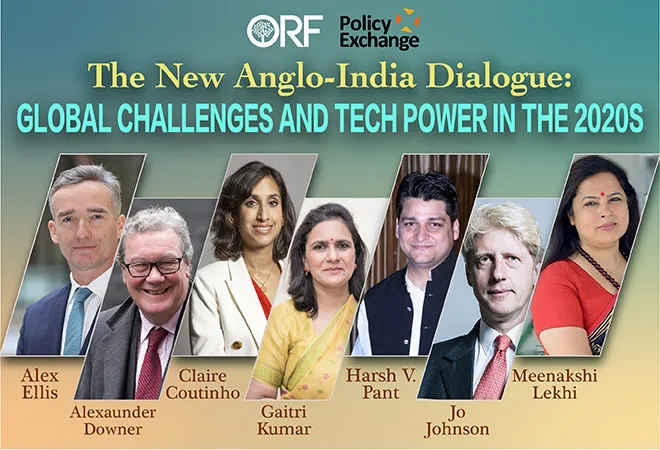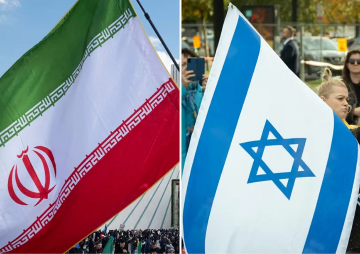Despite challenges posed by the COVID-19 pandemic, India–UK ties remain unfettered to harness new strategic convergences in sync with contemporary realities

Amidst the rapid momentum of geopolitical changes across the world, India and the United Kingdom share a special relationship that has immense potential to not only realise contemporary strategic opportunities but also provide a pragmatic solution to various challenges. Under its push for a ‘Global Britain’, the UK is looking for renewed partnerships in the broader Indo-Pacific region. On that account, India has been identified as an integral part of London’s ‘tilt’ to the region, since New Delhi and London already share a relationship that is marked by frequent interactions at all levels and across diverse realms. The UK is also home to 1.5 million people of Indian origin—comprising 1.8 percent of the population that contributes 6 percent of the country’s GDP. Apart from acting as “a living bridge” between the two nations, the Indian diaspora adds vibrancy to the pluralistic societal fabric of the UK.
In line with such inherent advantages for the India–UK relationship, the Observer Research Foundation (India) and the Policy Exchange (UK) jointly organised the inaugural edition of The New Anglo-India Dialogue: Global Challenges and Tech Power in the 2020s on April 20, 2021.
The event sought to outline global challenges and the need to revisit the India-UK partnership amidst emergent opportunities in the realms of green finance, fintech, and space. With this policy focus, the dialogue reimagined cooperation between London and New Delhi in the context of new geographies (Commonwealth 2.0), new domains (space, digital, technology), and new challenges (non-traditional security issues, climate change, the vaccine challenge). The event encompassed participation from incumbent members of parliament from both sides, high-level diplomatic representatives from India and the UK, and academics from the two partner institutions (see Annexure 1).
The Anglo-Indian synergy
Although rooted in colonial experience, India and the United Kingdom hone a modern, multidimensional strategic partnership across various bilateral and multilateral frameworks. Moreover, as HE Mrs Gaitri Issar Kumar noted in her remarks, the India–UK partnership has immense potential to provide collective solutions to various pressing global problems via bilateral and multilateral mechanisms. Recent case in point being, New Delhi-London engagements in Africa via pooling of FinTech and Innovation expertise—as highlighted by HE Mr Alex Ellis in his opening remarks.
India and the UK also boast of a bilateral strategic partnership since 2004, wherein both sides have emphasised the need for sustained institutional engagement. In this context, the dialogue probed grounds for multi-level engagements in the domains of security, technology, climate, and health. Wherein, a prominent example of India–UK strategic collaboration is the contemporary cooperation between Oxford AstraZeneca and the Indian Serum Institute during the COVID-19 pandemic.
Therefore, it should incur no surprise that India and the UK can and will reimagine their partnership amidst new geopolitical and geo-economic realities. The sheer breadth of the strategic partnership is also likely to be shaped by the shared democratic political systems, collaboration in healthcare research and education, and green finance.
Moreover, both India and the UK hone tremendous opportunity towards greater engagement in defence and security realms. India recently raised the Foreign Direct Investment (FDI) cap in the defence sector to 74 percent, in a bid to pave the way for ease in greater defence collaboration with like-minded partners such as the UK. This comes amidst strong India-UK diplomatic cooperation at the global level, with the two countries supporting each other unequivocally on reforming global governance infrastructure—including the United Nations Security Council.
New convergences and the way forward
India is the second-largest source of FDI in the UK, only after the United States. Similarly, the UK has been the second-fastest-growing G-20 investor in India. Trade between the two countries has increased by nearly 10 percent to about £24 billion in 2019, surpassing the growth rate of global trade. Amidst ongoing negotiations for the India-UK Free Trade Agreement, prospect for cooperation in cross-border digital payments has emerged with the Indian fintech sector witnessing a 40 percent increase in funding during the pandemic alone.
In addition, several India-based renewable energy firms have issued green bonds on the London Stock Exchange. Besides, New Delhi and London are keenly looking forward to collaborate in the Information and Communication Technology (ICT) sector through public-private partnership ventures. On this development, a poignant question was raised by Arlene Isabel Foster (Former Finance Minister for Northern Ireland), on the prospective role by subregions of the UK—and Northern Ireland in particular, in the UK's renewed partnership with India. With India and the UK honing tremendous resident expertise in the ICT sector, a model of sister-state/city relationships was identified as a prospective approach by Mr Alexander Downer.
The dialogue also stressed on the need for India and the UK to move from strength to strength in education, scientific research, and university-to-university collaboration. An important recommendation was made by Mrs Meenakshi Lekhi on initiating joint research projects between Indian and British universities. The rationale being that such projects will not only make a strong India-UK base for the knowledge economy, but also ultimately lend a boost to other major components of the strategic partnership in the long run. The discussion also underscored the need for a renewed political will from both sides to re-invest in the Commonwealth—an under-utilised entity in the nascent context of the Indo-Pacific.
However, impediments remain. In the education realm for instance, there is a considerable gap that still exists with respect to how British universities approach the need and scope for studying contemporary India, and vice versa in case of Indian universities underplaying the UK’s dynamism in post-Cold War global affairs. There is a need to now re-invent education cooperation in sync with contemporary times.
Hence, New Delhi and London need to primarily reduce the lacuna in their contemporary understanding of each other, since ample opportunities await the re-invigorated trajectory of India-UK ties in the 21st century. With timely steps on this aspect, India and the UK can fully capitalise on the discussed convergences in the fintech, ICT, education, and defence sectors.
This report was prepared by Mrityunjaya Dubey, Research Intern, ORF
Annexure I- List of Speakers
Alex Ellis
British High Commissioner to India
Alexander Downer
Chairman of Trustees, Policy Exchange, UK
Claire Coutinho
Member of Parliament, East Surrey, UK
Gaitri Issar Kumar
Indian High Commissioner to the UK
Harsh V. Pant
Director, Studies and Head of the Strategic Studies Programme, ORF, India
Jo Johnson
Former Minister of State for Universities, Science, Research and Innovation, UK
Meenakshi Lekhi
Chair, Parliamentary Committee on Public Undertakings, India
The views expressed above belong to the author(s). ORF research and analyses now available on Telegram! Click here to access our curated content — blogs, longforms and interviews.




 PREV
PREV

